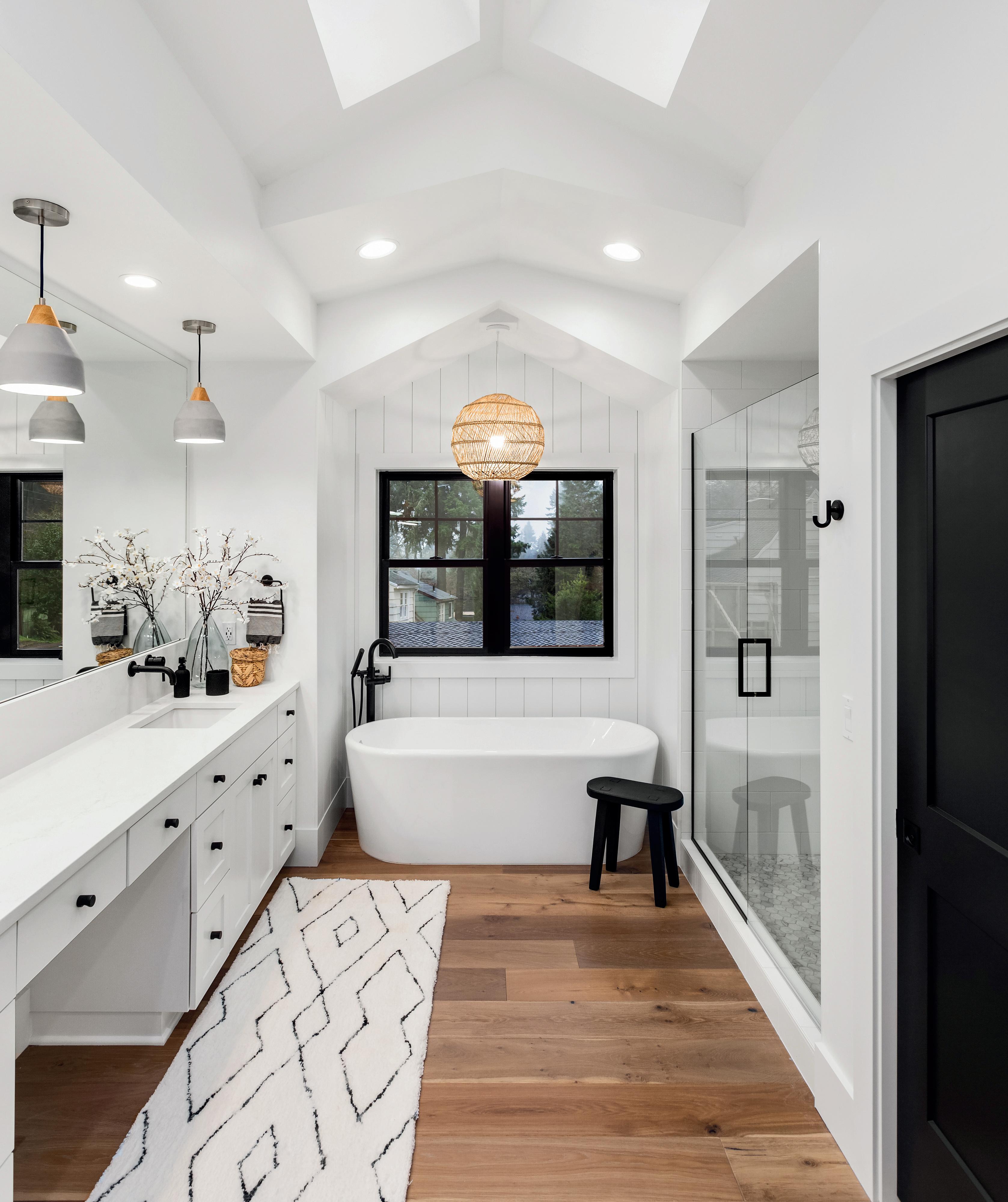

YOUR REALTOR
Specializing in Residential Sales
Expert negotiator with over 17 years of experience.
Top 100 REALTOR in Monterey Bay, serving all local communities


Robin Stelle
WHY WORK WITH ME
EDUCATION
Licensed REALTOR, Global Luxury Property Specialist certification, BA International Relations, Years of ongoing industry coursework
EXPERTISE
I am passionate about empowering my clients with the knowledge they need to make confident real estate decisions. Recognized for my deep understanding of both the market and local community, I prioritize transparency and informed guidance throughout the buying process. My expertise spans several key niches, including second and vacation homes, first-time buyers, multi-cultural clients, and navigating the complexities of selling and buying simultaneously.
EXPERIENCE
Over 17 years of experience as a full time REALTOR serving local Monterey Bay communities. Accomplished agent recognized year after year as a top producer.

BUYER AGENCY EXPLAINED
CLIENT RELATIONSHIP

OBEDIENCE
Follow your lawful instructions with regards to the transaction/working relationship
LOYALTY
Obligated to act solely in your best interest, not mine.
DISCLOSURE
Full & honest disclosure of all known information regarding the transaction.
CONFIDENTIALITY
Will not reveal your confidential information during the transaction and beyond (financial, motivation, highest price willing to pay, etc)
ACCOUNTING
Keep accurate records of all money and property involved in the transaction.
REASONABLE CARE
Protection from foreseeable risks; recommend expert advice or assistance when your needs exceeds my expertise.
DUAL AGENCY
DUAL AGENCY REPRESENTATION
There could be times when I also represent the seller of a property you would like to view or purchase. In this case, I will disclose this fact and present you with a dual agency form required by state law. If you decide to submit an offer, both sides (buyer & seller) would have to consent to dual agency in order to move forward, otherwise, another agent can be assigned to represent you. In a dual agency, I become a neutral party and cannot disclose either party’s position, motivations, confidential information, etc.
It’s possible that another Realtor in my brokerage may represent the Seller of a property you would like to view or purchase. This is dual agency within the brokerage. I would not be privy to confidential information about the Seller, nor would the Seller be privy to your confidential information, however, the brokerage will be as necessary in the processing of the transaction.
Possible Representation of More than One Buyer
It’s possible that I may have other buyer clients who are interested in the same properties as you. In this case, you will be treated honestly, ensuring your confidential information is never shared.
1
TO YOU
GETTING YOU IN THE DOOR
Together, we’ll zero in on the homes that truly fit your wants and needs—and get you through the door. With experience touring dozens of homes each week, I can help spot potential issues early on and suggest practical solutions.
2
HANDLING CHALLENGING CONVERSATIONS
If repairs come up, I’ll guide you through the process and handle the negotiations—whether that means requesting repairs or adjusting the price with the sellers.
3
STAYING ON TOP OF THE PAPERWORK
There’s a lot of paperwork involved in buying a home, but you won’t be navigating it alone. I’ll walk you through each document, making sure nothing is overlooked and that you feel confident and informed before signing anything.
4 ON YOUR SIDE
As your buyer’s agent, I’ll represent your best interests every step of the way. With a strong grasp of our local market and how different features influence a home’s value, I’ll help you craft a competitive offer on the home that’s right for you.
5
NEIGHBORHOOD EXPERT
With daily experience working alongside local inspectors, contractors, and sellers, I bring valuable insight into our market. When it’s time to make an offer, having a strong understanding of the local real estate landscape can make all the difference— and I’m here to help you get the best possible outcome.
6
SOLUTION FINDER
I’m here to protect your interests and handle any bumps along the way, so the process stays as smooth and stress-free for you as possible.
PARTNERINGTogether
My Role
My role is to look out for your best interests throughout the entire process. I’ll keep communication clear, honest and respectful, offer thoughtful guidance at each step, and work quickly to resolve any issues that come up. I’ll schedule homes that match your criteria, and we’ll move forward with a strategy that aligns with your goals and comfort level.
I'm here to make the journey as smooth, informed, and rewarding as possible—so you can move forward with confidence and peace of mind.
Your Role

Enjoy the process—this is an exciting time! I’ll be here to guide you, so feel free to reach out with any questions along the way. Please try to respond promptly to requests from escrow and me so we can keep everything moving smoothly. If possible, avoid scheduling travel close to the expected closing date, as timelines can shift. And most importantly, take time to do your due diligence—you’re making a meaningful investment, and I’m here to support you every step of the way.
TRANSPARENCY OF
Compensation
Supporting you with expert guidance, negotiation, and resources through one of your most significant purchases is a priority for me.
The Exclusive Buyer Representation Agreement outlines our working relationship, including the fee for services due at closing. Before scheduling a showing, I can ask the seller’s agent whether the seller is offering buyer’s broker compensation.
COMPENSATION CAN BE NEGOTIATED
SCENARIO 1
YES, there is a FULL cooperating offer of compensation from the seller. At closing the Seller pays the Buyer broker compensation.
SCENARIO 2
NO, there is no cooperating offer of compensation from the seller. The Seller expects the Buyer to pay their agent compensation.
SCENARIO 3
YES, there’s a PARTIAL cooperating offer of compensation from the Seller. The balance is paid by the Buyer at closing.

PROCESS OF BUYING
PROCESS OF BUYING
The journey to homeownership can be complex. Our goal is to provide clarity.

Meet With A Realtor
Discuss your budget, preferred home type, and desired location.
Formalize your partnership by signing a Buyer Representation Agreement.
Identify Funds
Consult with your financial advisor to identify which funds to access for your cash purchase. Request a “proof of funds” letter.
Search & Tour
Custom search created. Preview listings, save notes, send tour requests for properties you want to see in person, and more!
Final Walkthrough
Ensures that the property is in the agreed-upon condition and that any repairs or agreed-upon items have been addressed satisfactorily
Closing
The transfer of funds and ownership is overseen by an impartial third party, often a title or escrow company.
The Details Schedule inspections, order an appraisal if desired, review seller disclosures, and discuss the inspection findings.
Submit An Offer
Prepare an offer based on your chosen price and terms. The seller may respond with a counter-offer, which you can accept, reject, or counter again.
Home Ownership
The deed records. Congratulations, you’re a homeowner!

CHOOSING A NEIGHBORHOOD
WHAT KIND OF HOME DO YOU WANT?
Are you interested in singlefamily, condo or townhome?
CONSIDER YOUR COMMUTE
Will you work from home, or drive to work? Do you want to stay within a specific radius of work?

COMMUNITY
What would you like to see in your new community? Is it more coffee shops? Events? Closer to the water? Whatever it is write it down and choose areas that have those features.

MUST NOT HAVE
Everyone has wants but have you considered the things you don't want? If you hate noise you might want to steer clear of the college area for example.

A
casual conversation
Sellers with estate homes will frequently request that before showing their home an agent affirm that the prospective buyer has funds to purchase.
FUNDING YOUR HOME Pre-Qualification Proof of Funds
Preparing for a Cash Purchase
In a competitive market, being prepared with a proof of funds letter helps position you as a serious and capable buyer. This simple letter from your financial institution or advisor confirms that you have sufficient funds available to complete the purchase. While it doesn’t need to reveal account details, it should verify that the purchase amount can be covered. For high-value properties, sellers or their agents may request this before allowing private showings, and it’s typically required when submitting an offer.
Having your plan in place ahead of time ensures we’re ready to move forward confidently when the right home comes along.
COSTS OF BUYING
Your home purchase includes:
DEPOSIT
Earnest money is an upfront deposit that goes to escrow within 3 days of a ratified purchase agreement. Itshowsgoodfaith.
The custom in California is for the initial deposit to be up to 3% of the purchase price. Sometimes, the more you can offer, the more attractive your proposal can appeartoaseller.
At closing, you’ll deliver the balance of the purchase price, plus yourclosingcosts.
CLOSING COSTS
EXAMPLES:
Property appraisal ( usually paid upfront )
Home inspection ( usually paid upfront )
Title search / title policy fee(s)
Recording fee
HOA dues (if applicable)
Notary fee
Property tax prorations
Escrow fee
If you add in a private money loan then
Origination fees ( ask lender )
Mortgage points
Processing/underwriting fee
Administrative fees
Rate lock fee(s) ( if applicable )
Homeowners insurance ( 1 year policy )
Pre-paid mortgage interest
Not an exhaustive list.
*Earnest money is protected by contingencies

THE HOME SEARCH
ROBIN STELLE, REALTOR
The federal law prohibits housing discrimination based on seven protected classes:
Race, Color, National origin, Religion, Sex, Familial status, Disability
How this impacts our housing search... FEDERAL & STATE FAIR HOUSING Protected Classes
Questions like:
Is the neighborhood safe?
How are the schools?
Who lives here?
Tell me about the crime in the area?
Our state of California offers additional protections:
Gender, Gender identity, Sexual orientation, Maritial status, Military/Veteran status, Medical condition, Genetic information, Source of income, Criminal history, Primary language, Immigrations status, Age
I CANNOT give you my opinion, BUT....
I CAN...suggest 3rd party websites and other helpful resources so that you can form your own opinion about whether a home or neighborhood is desirable.
I will never make assumptions about where you want to live. You may perform your own research and communicate your preferences to me.
You will be shown any home in any neighborhood that fits your needs, preferences and budget.
FOCUS ON WHAT MATTERS
Location. Do you like the area?
Does the floorplan suit your needs? ( you can always change decor )
Does the home meet your storage needs?
Vacant homes can be difficult to know whether your furniture will fit, so don’t write them off before measuring.
Exceptional homes priced well are rare; be prepared to act quickly.
The right home will always find you and you may know it almost as soon as you walk through the door.
Look at the days on market and the original list price. Sellers tend to become more flexible on price and terms the longer a home is on the market.
Unusual homes can be nice, keep in consideration it may take longer to re-sell.

SELLER’S MARKET
THE CURRENT REAL ESTATE MARKET Characteristics
BUYER’S MARKET
Balanced market means demand meets the supply of newly listed homes for sale. This means there are about the same number of serious buyers as homes, which means homes are selling but usually not right away. Buyers have choice, but shouldn’t expect a Seller to give in to every request. In this case, buyers should:
Do their research prior to offering
Prepare a strong offer
Ask for what they want when making a strong offer
Avoid settling
Key Data Points
Inventory
Pricing trends
Are sellers getting their asking price? How long are homes sitting on the market?

MAKING AN OFFER
THE OFFER PROCESS
Let's talk about the offer process, here are the steps and what to expect.
DRAFT THE OFFER
We will draft an offer that protects you and include any clauses that make sure are needed. Keep in mind that this offer is just an offer, until it is accepted.

ACCEPT
The Seller may accept your offerCONGRATS!!!!
REJECT COUNTER
The Seller may reject your offer.
The Seller may come back with their own offer
Time to celebrate, now we will move ahead with any conditions laid out in the offer like home inspection. Once completed we wait for closing and then MOVE IN!
We will ask questions to discover why and if there is anything we can do to make the offer more appealing. If not we move on and find the home you were meant to have!
In this case, we will review the terms with you and continue to negotiate until we have reached a mutual agreed upon offer or until no agreement can be reached.
INCLUDED IN AN OFFER MAIN CONTINGENCIES
A written offer may contain these elements, among others:
Address: The home's legal address
Price: Details regarding the purchase price and terms.
Earnest money: The amount and terms regarding the earnest money, including its disposition upon acceptance of the offer.
Title: A stipulation that the seller will provide clear title to the property.
Closing costs: Details regarding which party will pay closing costs or other fees, as well as how certain taxes and expenses will be prorated between the buyer and the seller at closing.
The date and time of the offer’s expiration.
Contingencies: Any contingencies that the deal is subject to (more on these in the next section).
Disclosures: Other state-required provisions or disclosures.
A closing date. Take into account the time you may have requested for an investigation contingency, then add a few days to allow time for escrow to setup the closing, and for the sellers to empty the home after release of all contingencies.

Inspections: In addition to requiring that the property undergo a home inspection, this contingency may also specify how issues revealed during the inspection will be addressed (for example, if the seller will repair or provide a credit at closing), or if the inspection is for informational purposes only.
Review of Seller Disclosures: The seller is required to provide detailed questionnaires and advisories about the property’s condition. If anything raises concern, we can revisit the terms and explore options to address them before moving forward.
Home sale: This is an uncommon contingency that means the purchase relies on the completion of another, separate transaction. It could be either the sale of your current home or the seller finding a new home.
While it’s important to protect your interests and gather the information you need to make a smart purchase, overly long contingencies can make your offer less competitive. The goal is to include just the right protections to cover your key concerns without adding unnecessary obstacles.
INSPECTION TYPES
Buyers are advised to conduct inspections in order to understand the condition of the home. Each inspection incurs its own cost, which often are ordered and paid for by the Buyer after Seller acceptance during the investigation contingency timeline. Below are examples of typical inspections:


PREPARING FOR CLOSING Insurance
TYPES OF INSURANCE
Hazard Insurance
Shop for homeowners insurance for a 1-year policy. You would do this through an independent insurance carrier of your choice. Because insurance in California is getting more difficult to underwrite, you’ll want to start this process at the beginning.
Flood Insurance
Information and updates on Flood insurance can be found at www.floodsmart.gov.
Title Insurance
Owner’s Title Policy: This policy safeguards your ownership rights against title defects. In Northern California, the Seller usually covers this cost. The policy terms are outlined in a Preliminary Title Report delivered during escrow for Buyer review.
Home Warranty
A home warranty is not required, however, it can add peace of mind. A home warranty can cover things like major appliances, electrical, plumbing, furnace and more -- depending on the coverage you select.

PREPARING FOR CLOSING WaLk-Through & Closing Day
The Final Walk-Through is your final opportunity to go back to the property just before you head to the closing table.
Its an opportunity to ensure no damage has been done since you were last there during inspections
Ensure all negotiated items are present/gone per the agreement
Confirm inspection repairs are completed
More importantly, ensure the seller has moved out
Heading to the closing table is THE final act in the buying process. This is your moment you’ve worked so hard for. However, before you get the keys, you’ll need to sign, sign and sign some more.
You’ll need to bring:
Photo ID
At the escrow signing, you will:
Sign legal agreements transferring ownership
Arrange delivery of remaining funds to purchase
Receive copies of closing documents, including the settlement statement.
CLOSING happens a day or so after signing when all funds are received and the deed is recorded at the County Recorders’s office. Then I get to give you KEYS !

checklist
PREPARE FOR YOUR MOVE
UPDATE YOUR MAILING ADDRESS
at usps.com or fill out a change-of-address form at your local post office. Change your address with important service providers such as your bank(s), credit companies, magazine subscriptions, and others.
MAKE NOTE OF WHO WILL NEED YOUR NEW ADDRESS
Whether you plan on sending formal change-of-address notices in the mail or just e-mailing the family members, friends, and colleagues who should be informed, a list will ensure no one gets left out.
CONTACT UTILITY COMPANIES
Make sure they’re aware of your move date, and arrange for service at your new home if the service provider will remain the same.
CHECK INSURANCE COVERAGE
The insurance your moving company provides generally covers the items they transport for you. Ensure you have coverage for items you’ll be moving yourself.
CHECK WITH THE HOA
about any restrictions on particular exits or entrances for moving, if applicable.
PACK AN “OPEN FIRST” BOX
Include items you’ll need most, such as toilet paper, soap, trash bags, chargers, box cutters, scissors, hammer, screwdriver, pens and paper, cups and plates, water, snacks, towels, and basic toiletries.

